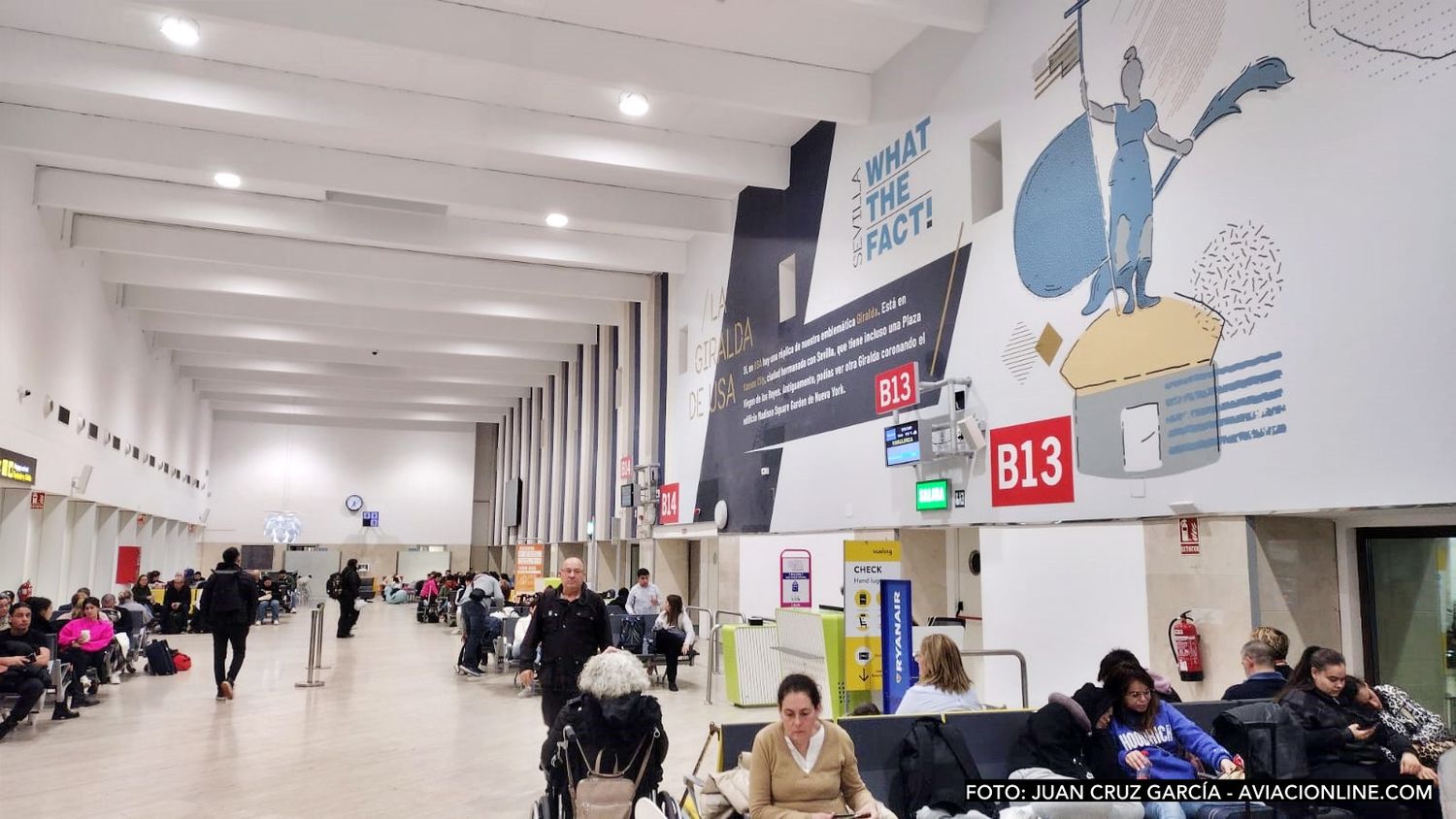The San Pablo Airport in Seville faces growing challenges in meeting the transportation demands of its increasing passenger base, according to a report by Fernándo Perez Ävila in the Diario de Sevilla. Despite consistently achieving record user numbers, the taxi service, controlled by a limited group of drivers, has not kept pace, leaving travelers dealing with long waits and insufficient service.
Passenger growth versus lack of taxis
In October 2024, San Pablo Airport set a new record with 839,011 passengers, an 8.8% increase compared to the same month the previous year. This translates to a daily average of 27,063 users. However, as highlighted by the Diario de Sevilla, the number of taxi drivers operating at the terminal remains almost the same as two decades ago, when annual traffic ranged between two and three million passengers.
Currently, only about 215 taxi drivers, affiliated with the Hispalense Taxi Solidarity Association, are authorized to operate at the airport. After factoring in rest shifts, this leaves only 140 to 160 drivers available per day, an obviously insufficient number. The lack of a direct rail connection to the city further complicates the situation, forcing passengers to rely almost exclusively on taxis, the Tussam public bus, or private vehicles.
A monopoly worsening the issue
The airport taxi stand operates under what Pérez Ávila describes as a «de facto monopoly«. While this system benefits the involved taxi drivers financially—working with flat rates of €24.98 on weekdays and €27.84 at night and on weekends—it limits taxi availability and discourages non-affiliated drivers from operating in the area. Attempts by non-affiliated drivers to pick up passengers have led to tensions and confrontations, as documented by the Diario de Sevilla, which even reported threats among drivers.
The monopoly has also historically led to practices of intimidation, sabotage, and reprisals against those who challenge the current structure. According to the Diario de Sevilla, these incidents have included vehicle damage and attacks at the homes of taxi drivers.
Necessary reforms
Both the sector and users have proposed solutions, such as implementing a rotating system similar to the one successfully operating at Málaga Airport. This proposal is supported by the Andalusian High Court of Justice, which ruled in 2002 that such a system would improve service quality and promote fairness among drivers. However, previous attempts to introduce this measure, like the initiative led by the City Council in 2003, failed due to opposition from some sectors of the taxi guild, including threats against municipal officials.
Despite this, many taxi drivers in Seville support this reform, which would allow fair rotation and improve taxi availability at the terminal. Nevertheless, local governments have avoided tackling the issue out of fear of strikes or boycotts during critical tourism periods such as Holy Week or the April Fair.
An uncertain future
The current City Council has acknowledged the problem but has yet to take concrete action. In statements collected by the Diario de Sevilla, municipal authorities noted that «we are working with taxi drivers to improve the service… For now, all possibilities are being studied, but nothing is defined.»
With San Pablo Airport reaching record numbers and solidifying its role as a key driver of Seville’s tourism, resolving this conflict is becoming increasingly urgent. A more equitable system, along with additional transportation alternatives, could ease pressure on users and improve the airport’s image as a gateway to the city.


Comentarios
Para comentar, debés estar registrado
Por favor, iniciá sesión